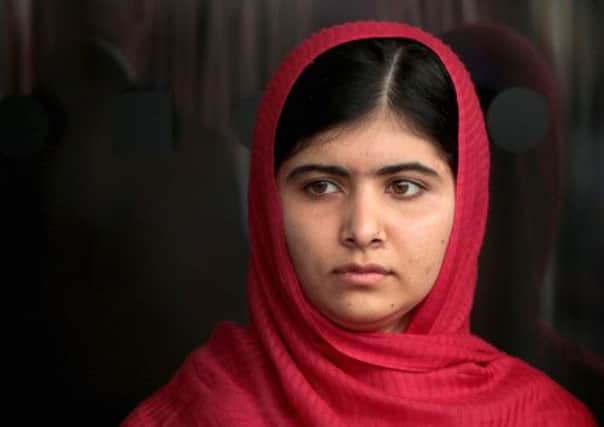New Pakistan Taleban amir ordered Malala shooting


The elevation of Fazlullah – known for his fierce Islamist views and hectoring radio broadcasts – by the Taleban Shura council yesterday, follows the killing of Hakimullah Mehsud, the previous leader or amir, in a US drone strike last Friday.
Mehsud and his allies had been tentatively open to the concept of ceasefire talks, but Fazlullah’s emergence as the new chief changes that picture.
Advertisement
Hide AdAdvertisement
Hide Ad“There will be no more talks as Mullah Fazlullah is already against negotiations with the Pakistan government,” Shahidullah Shahid, a Taleban spokesman, said by telephone from Afghanistan. “All governments play double games with us. In the name of peace talks, they deceived us and killed our people. We are 100 per cent sure Pakistan fully supports the United States in its drone strikes.”
Pakistani officials have publicly criticised CIA drone strikes, saying they violate Pakistan’s sovereignty and kill too many civilians. But Islamabad is known to have secretly supported at least some of the attacks.
Fazlullah is the first leader of the Pakistani Taleban not to come from the Mehsud tribe based in South Waziristan. The group’s first leader, Baitullah Mehsud, was killed by a US drone strike in 2009.
Some Mehsud commanders were apparently unhappy with Fazlullah’s election but eventually accepted it under pressure from senior members, said a Pakistan intelligence official.
The Pakistani Taleban insurgency is fighting to topple prime minister Nawaz Sharif’s government in Islamabad and impose Sharia law in the nuclear-armed nation. Attacks have been on the rise since Mr Sharif came to power in May promising a negotiated end to violence, a concern for global powers already unnerved by the security implications of the withdrawal of most US-led troops from Afghanistan in 2014.
No meaningful talks have taken place since Mr Sharif’s election and Fazlullah’s rise could signal a new period of uncertainty and violence.
Fazlullah claimed responsibility for the deaths of a Pakistani army general and two other soldiers in a roadside bombing near the Afghan border in September. The killings outraged the military and raised questions about whether the Taleban had any interest in negotiating peace.
The head of the Taleban’s shura, Asmatullah Shaheen Bhitani, said the new amir had taken over the decision-making process within the Taleban and would soon decide how to avenge the death of Mehsud.
Advertisement
Hide AdAdvertisement
Hide Ad“We will take revenge on Pakistan for the martyrdom of Hakimullah,” he said. Such threat usually result in civilian casualties, though the Taleban maintains that such people are not its targets.
Fazlullah’s troops melted away across the mountainous border into Afghanistan in 2009 after an offensive by the Pakistan army which now controls the area. Fazlullah is believed to be in Nuristan province.
Weekend reports wrongly identified Said Khan, known as Sajna, as the new head of the Pakistan Taleban, claiming he had been elected by the Shura council of Tehreek-e-Taleban Pakistan.